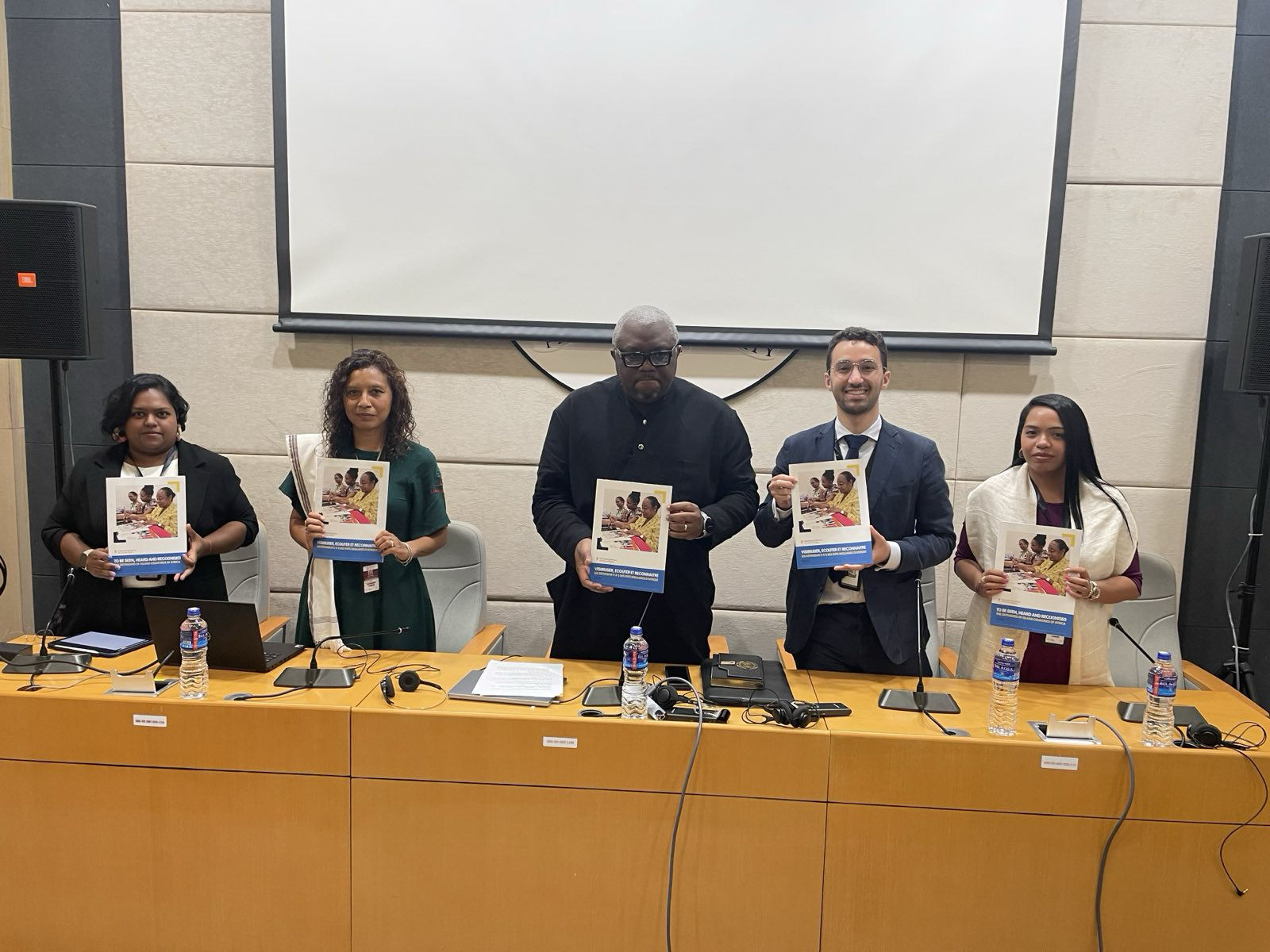
Egypt: Reform unjust vice laws, guarantee open civic space
During Egypt's UPR adoption at HRC59, Nora Noralla delivered a joint statement on behalf of ISHR, Cairo 52 and Middle East Democracy Center. Watch and read the full statement below.

This month, which marks 14 years since the development of the Yogyakarta Principles and 3 years since the development of the Yogyakarta Principles +10, we look at the way these principles have been applied in the past few years by NGOs globally to achieve equality and justice for LGBTI people across the world.
In November 2006, in response to well-documented patterns of abuse against LGBTI people, a group of international human rights experts outlined a set of international principles relating to sexual orientation and gender identity, the Yogyakarta Principles (YPs). The 29 principles are a restatement of existing international law which spans core civil and political rights like the freedom of movement and assembly, as well as core socio-economic rights, such as the right to education and to work.
In 2017, to mark the 10th anniversary of the YPs, the Yogyakarta Principles plus 10 (YPs +10) were adopted as a supplement to the YPs. The YP +10 document emerged from the intersection of the developments in international human rights law with the emerging understanding of violations suffered by persons on grounds of sexual orientation and gender identity and the recognition of the distinct and intersectional grounds of gender expression and sex characteristics.
Over the past 14 years, the YPs have been referred to in national, regional and international fora to strengthen the protection of the rights of LGBTI persons. Civil society has been the driver of this progress. Below we discuss some recent developments following the drafting of the YPs +10.
The YPs have been relied upon in various domestic judgments. In 2016, the Court of Appeal in Botswana referenced the YPs when ordering the registration of an LGBTI organisation, and confirming that the refusal to allow the registration was unconstitutional. In 2015 Nepal became the 10th country to specifically protect LGBT persons in its Constitution. The decade prior to that was critical in the evolution toward that moment, as LGBT activists won significant victories in Nepal’s courts, including the 2007 judgment recognising a third gender that used YPs to define sexual orientation and gender identity. In India in 2018, the YPs were used to support a successful challenge to section 377 of the Indian Penal Code and decriminalise homosexuality. These decisions in South Asia were then cited by the District Court in the Netherlands in its recognition of a third gender in 2018.
Beyond legal cases, the YPs have provided a basis for civil society advocacy and campaigns. In the Netherlands, activists have promoted customised health care for trans persons in line with the YPs, and the YPs have been embraced in the international trans depathologisation agenda. In 2018, the Australian Human Rights Commission refered to the YPs in a discussion on best practices in the protection of the human rights of intersex persons in the context of medical interventions. Most recently, in November 2020, the YPs +10 were relied upon in resources and arguments for a bill on the Integral Protection of Sex Characteristics in Argentina.
In 2018, referring to the YPs and YPs +10, the Inter American Court advised Costa Rica that it should ensure that trans persons can change their name and gender markers on identity documents, and that same-sex couples enjoy full family rights, including marriage. In 2020, ISHR submitted a third-party intervention to the Inter-American Court of Human Rights in relation to trans femicide in Honduras, arguing that various principles in the YPs and YPs+10 had been violated.
The YPs were relied upon in a communication to the UN Human Rights Committee as calling for legal recognition of gender identity, regardless of marital status, and were referenced by the Committee in its decision in 2017. That same year, ISHR submitted a third-party intervention relying on the YPs to the Human Rights Committee in relation to an individual complaint regarding attacks against an advocate for LGBTI rights in Russia. In 2019, a joint statement of National Human Rights Institutions in the Asia Pacific region confirmed their intention to monitor State compliance with responsibilities to respect human rights of LGBTI people, in light of the YPs.
‘In providing a consistent understanding of international human rights law and its application to issues of sexual orientation, gender identity or expression and sex characteristics (SOGIESC), the YPs and YPs +10 assist States to clearly understand their duties. We’re looking forward to the continued progress – led by civil society – and based on the YPs, and critically the newer YPs +10, in enhancing the protection of all persons from discrimination based on SOGIESC,’ said ISHR’s Tess McEvoy.
Contact: Tess McEvoy, [email protected]
Photo: Yogyakartaprinciples.org

During Egypt's UPR adoption at HRC59, Nora Noralla delivered a joint statement on behalf of ISHR, Cairo 52 and Middle East Democracy Center. Watch and read the full statement below.

The 59th session of the UN Human Rights Council (16 June to 9 July 2025) will consider issues including civil society space, climate change, sexual orientation and gender identity, violence and discrimination against women and girls, poverty, peaceful assembly and association, and freedom of expression, among others. It will also present an opportunity to address grave human rights situations including in Afghanistan, Belarus, China, Eritrea, Israel and oPt, Sudan, Syria and Venezuela, among many others. Here’s an overview of some of the key issues on the agenda.

On 4 May 2025, on the sidelines of the 83rd Ordinary Session of the African Commission on Human and Peoples’ Rights (ACHPR) in Banjul, ISHR officially launched its new report on the situation of human rights defenders in the African island states: Cape Verde, Comoros, Madagascar, Mauritius, São Tomé and Príncipe, and Seychelles.